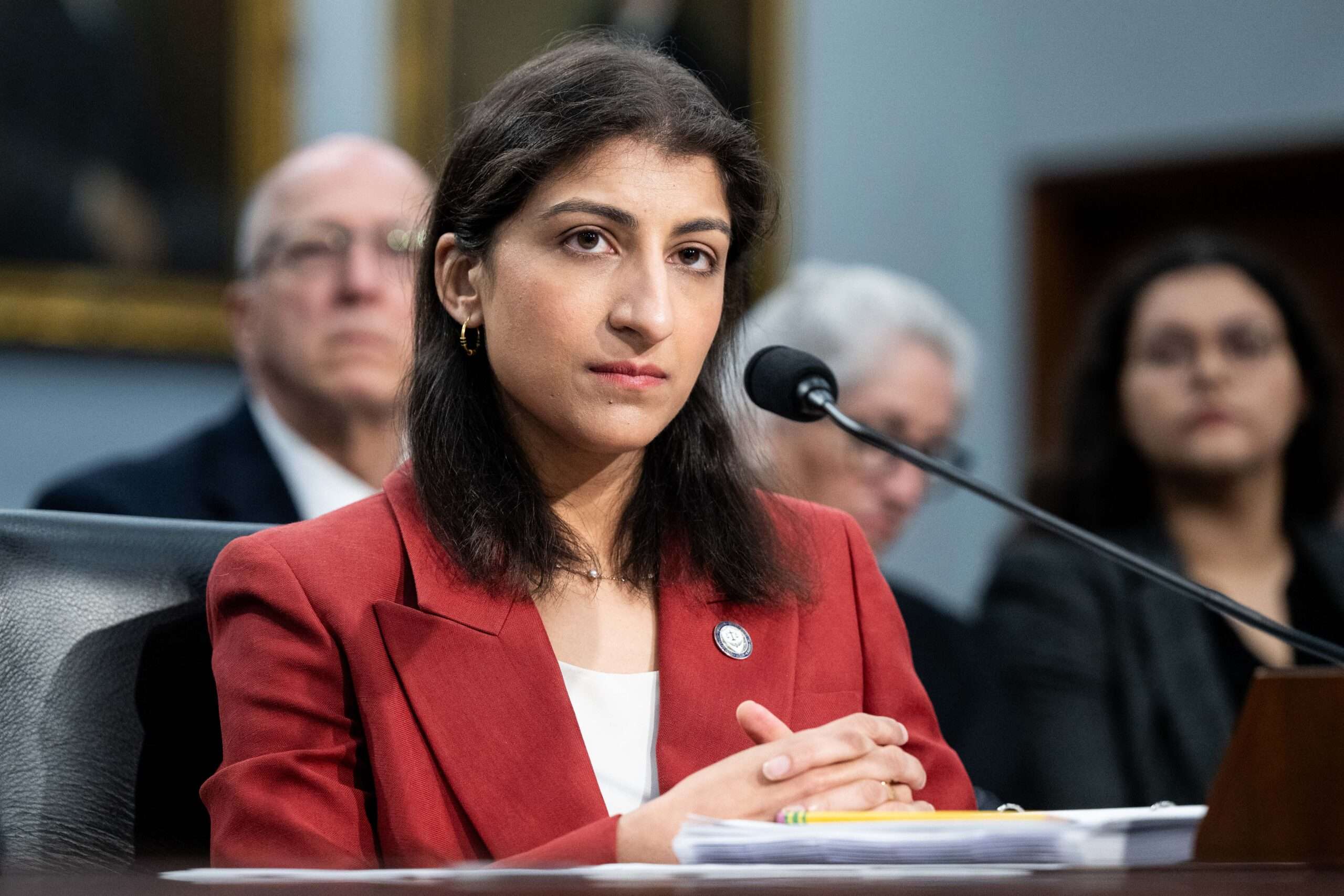Farewell, Lina Khan
The future of Lina Khan, Chair of the Federal Trade Commission (FTC) under President Joe Biden, appears bleak as the political landscape shifts towards a Republican administration led by Kamala Harris’s successor. Despite her controversial leadership at the FTC, where she adopted an aggressive agenda against mergers, acquisitions, and Big Tech regulation, Khan’s tenure has sparked debate about her vision of the agency’s purpose. Critics contend that Khan has framed regulatory challenges as emergencies requiring immediate action, despite the FTC lacking any emergency powers. This has ignited controversy regarding the agency’s limited constitutional jurisdiction and its authority to enforce antitrust laws independent of congressional action or judicial oversight.
Khan’s approach aligns her with a group of thinkers labeled as neo-Brandeisians or “hipster antitrust” advocates, who prioritize an abstract notion of competition over the more traditional consumer welfare standard. This philosophical shift has resulted in a skewed conception of antitrust regulations, shifting the focus from consumer harm to the supposed dangers posed by large and successful firms. Consequently, typical business practices that enhance efficiency, such as product bundling and acquisitions, could potentially breach antitrust laws under this new framework. The implications of such a perspective are dire not only for businesses but for consumers who could face reduced innovation and choice.
Under Khan’s leadership, the FTC has faced significant challenges, resulting in a series of legal setbacks that highlight the dubiousness of her regulatory vision. By straying from established legal standards governing antitrust interpretations, her office has encountered difficulties in court, thereby tarnishing the credibility of the FTC. Advocates of Khan’s brand of expansive regulations may have factored these challenges into their strategies, but the increasing strain of lost cases underscores the inefficiencies within the agency’s enforcement agenda during her tenure. Furthermore, the Biden administration’s attempts to reshape merger and acquisition regulations serve to align the agency’s practices more closely with Khan’s ideological leanings, raising concerns about the retrograde nature of this shift towards aggressive regulatory oversight.
Given these ongoing dynamics, there is hope among proponents of free markets and consumer welfare that Khan’s influence will soon wane as the political winds change. However, the incoming Republican administration carries its own complexities concerning antitrust enforcement principles. There exists a notable risk that the future FTC under a Trump-led presidency may adopt problematic views akin to some of the anti-free market tendencies seen in the current Democratic stance. This connection is evident in figures like potential Vice President J.D. Vance, who has shown admiration for Khan’s regulatory efforts, raising questions about the continuity of such controversial oversight policies despite shifting party paradigms.
While optimism about Khan losing her position is prevalent, uncertainty looms regarding who will fill her shoes in the new administration, as Trump is likely to appoint candidates who resonate more with his ideology and administrative loyalty. The prospect of appointing an FTC chair who mirrors Khan’s expansive regulatory views remains, as Trump has historically demonstrated a tendency to favor loyalty over ideological purity in his appointments. Still, the magnitude of hostility against Big Tech and monopolistic practices is anticipated to linger within the regulatory framework, reflecting a broader pattern of skepticism towards large corporations that embodies both left- and right-leaning political sentiments.
In summary, as the Biden administration faces potential transition to Republican leadership, questions abound about the future of the FTC under Lina Khan’s stewardship. Her controversial approach to antitrust law and her alignment with neo-Brandeisians may soon become outdated as power dynamics shift. Nevertheless, it remains critical to scrutinize and evaluate the ideologies governing any forthcoming regulatory appointments that may either echo or counteract Khan’s expansive philosophy. Ultimately, the fate of the FTC’s regulatory approaches will shape the landscape of American capitalism, as policymakers grapple with balancing competition with the need for innovation and consumer protection in an increasingly complex market environment.
Share this content:












Post Comment